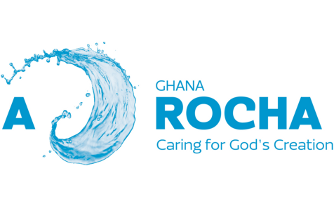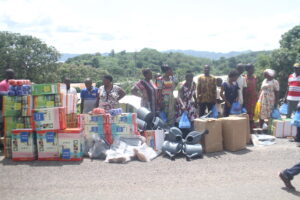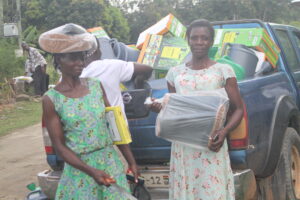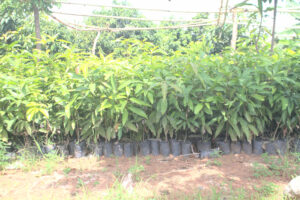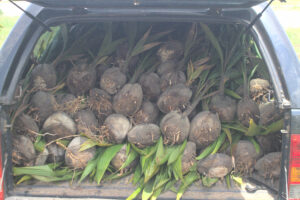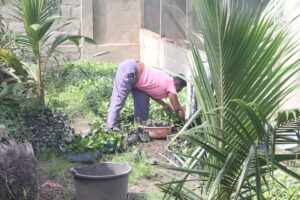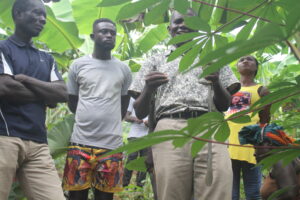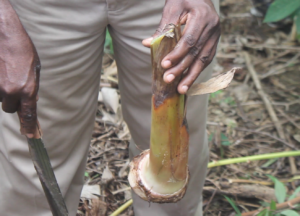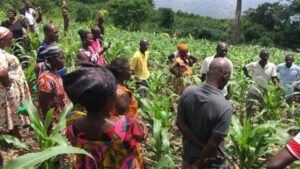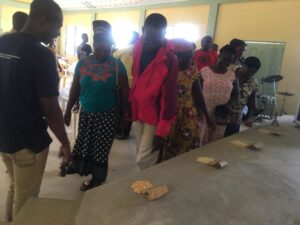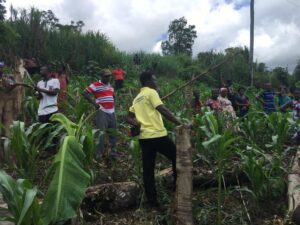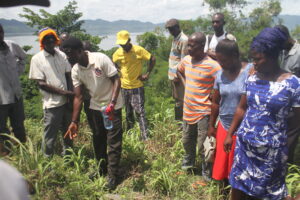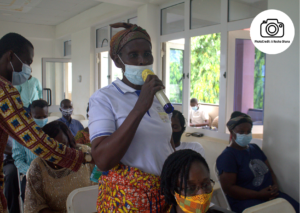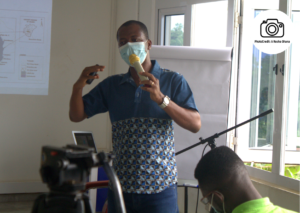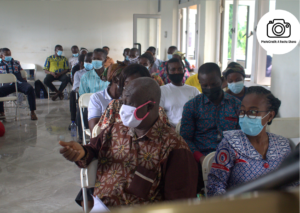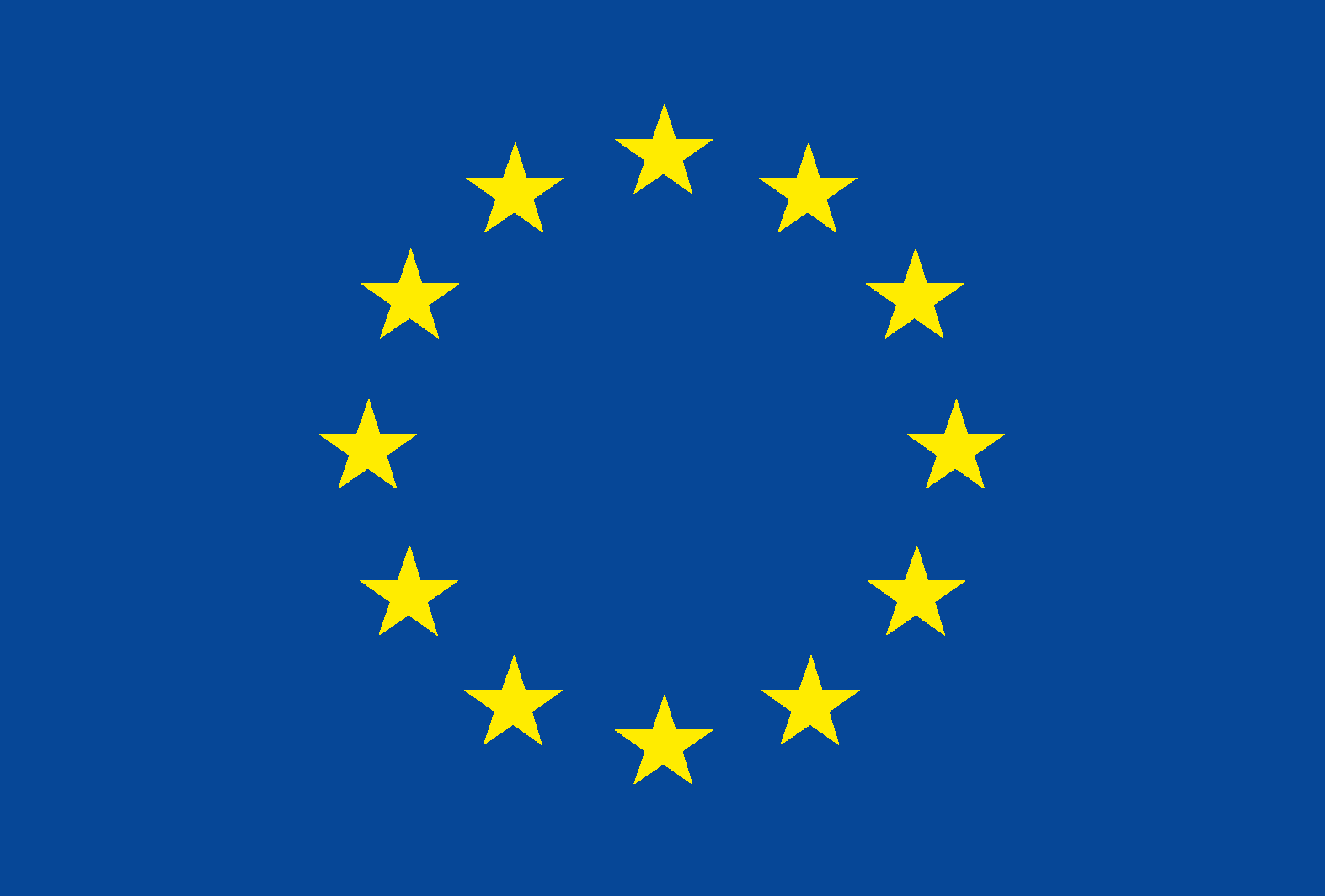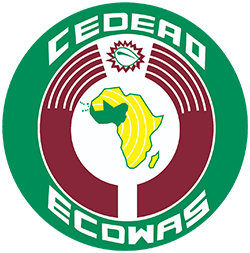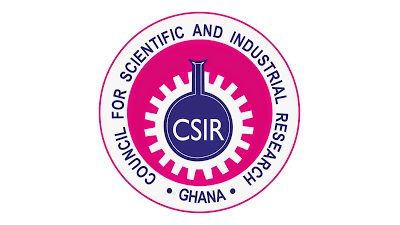Project Activities
Agroforestry interventions
A total of 5200 indigenous fruit and tree species have been supplied to farmers and subsequently planted as an agroforestry intervention under the project.
Farmer equipment supply
Knapsack for (Bio-pesticide formulation and application), Farmers Wellington boots, Cutlasses, Measuring tapes, Planting lines and Watering Cans supplied to farmers
Plantain production training for improved livelihood
Farmers at various stages of the project receive training on plantain production including types of plantains, morphology, plant architecture, growth parameters, phenology, post-harvest, pests, and diseases, and their control.
Watch video on the Macro Propagation of Plantain HERE
Maize Crop Production training
Farmers in the Bosomtwe and Bosomtwe Freho District of the Ashanti Region receive training on farm management and agronomic practices for sustainable maize production.
PICSA tool deployment
Farmers capacity built on Participatory Integrated Climate Services for Agriculture (PICSA) tool deployment—an approach that seeks to build resilience at the farm level by supporting decision-making through the integration of information on location-specific climate, crops, livestock, and livelihoods.
Biochar Production
Beneficiaries have been taught to produce Biochar—a material produced from the pyrolysis of organic materials. Pyrolysis refers to burning in the absence of or with limited oxygen. Biochar has been given the nickname “black gold” because of the immense benefit it has in the soil and to crops.
Watch the Biochar preparation process HERE
Photos from various activities
